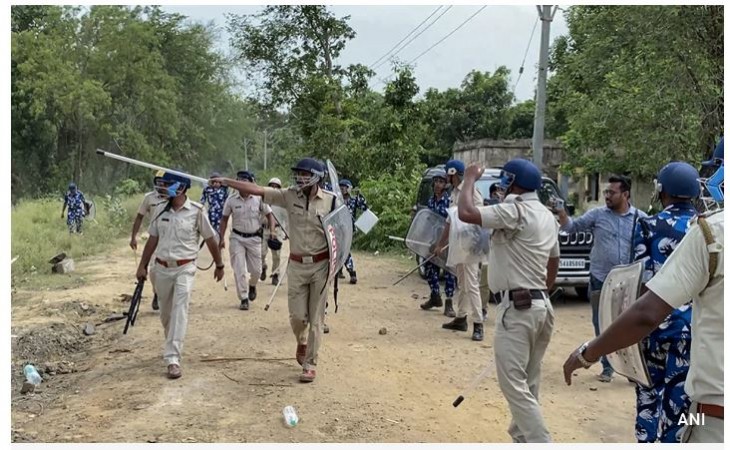
KOLKATA: The upcoming panchayat election in West Bengal has become notorious as one of the most violent local body elections in recent times. With only a few days remaining until the July 8 polls, the violence has already claimed the lives of 15 individuals. This surge in violence started shortly after the issuance of the election notification on June 8.
Initial estimates indicate that approximately 12% of the 73,000 seats in the three-tier panchayats have been won uncontested by the Trinamool Congress. During the nomination withdrawal process, 9.13% of the nominations, primarily filed by supporters of opposition parties, were withdrawn.
Elections in West Bengal are known for their violent nature, and the panchayat elections, which involve hundreds of thousands of contesting candidates, have been plagued by political muscle-flexing and the use of violence to exert control over specific areas. In the 2018 panchayat polls, the ruling Trinamool Congress won about 34% of the seats uncontested, and 17.66% of the nominations were withdrawn during the election process.
While more seats will be up for contest in the 2023 panchayat elections, numerous allegations have surfaced, including preventing candidates from filing nominations, coercing candidates to withdraw nominations, and intimidating political opponents. Candidates from opposition parties, as well as independents, have been forced to go into hiding after submitting their nomination papers.
In the lead-up to the rural polls over the past month, the debate has primarily revolved around the deployment of central forces.
The Calcutta High Court intervened in the panchayat election process through its orders on June 13 and June 15. These orders were upheld by the Supreme Court on June 20. The High Court emphasized the necessity of deploying central forces for the panchayat polls. On June 21, the High Court directed the State Election Commission (SEC) to requisition central forces equal to or greater than those deployed during the 2013 panchayat polls.
Only on July 3 did the central government accept the SEC's proposal to deploy 822 companies, equivalent to the number of forces deployed during the 2013 panchayat polls, which were conducted in five phases. Despite the substantial deployment of central forces, the SEC cannot provide two armed personnel at each of the 61,636 polling booths in the state, as the voting will occur on a single day.
Moreover, instances of lawlessness are not confined to polling booths; they are widespread in rural areas, particularly after dusk. The presence of central forces can provide some reassurance, but it cannot entirely prevent violence. Therefore, the deployment of central forces, once crucial phases such as nomination and withdrawal are complete, is unlikely to have a significant impact on the ground with regard to the election process.
The 2021 Assembly election in West Bengal was conducted in eight phases with a substantial deployment of central forces. However, soon after the results were announced, there was widespread post-poll violence. In August 2021, the Calcutta High Court directed a CBI investigation into the post-poll violence, and by January 2022, the central agency had registered over 50 cases, including murder and sexual assault.
Unlike the post-poll violence in the 2021 Assembly polls, supporters of all political parties, including CPI (M), Congress, BJP, ISF, and even Trinamool, have been victims of violence during the ongoing election process. Inter-party clashes as well as intra-party clashes have resulted in deaths. Among those killed after the announcement of nominations for the rural polls, a majority are supporters of the Trinamool Congress. These victims predominantly belong to economically backward communities, and a significant portion of them are from minority groups. Certain districts such as South 24 Parganas, Murshidabad, and Cooch Behar have reported a higher number of violent incidents compared to others. As the State's Governor, C. V. Ananda Bose, pointed out, the violence is concentrated in specific pockets.
Violence acts as a significant disruptor of political processes, and elections conducted amidst such violence can neither be considered free nor fair. The West Bengal State Election Commission bears responsibility for choosing to hold an extensive exercise involving 63,239 seats at the gram panchayat level, 9,730 seats at the panchayat samities, and 928 zilla parishad seats all on a single day. The Commission has been reluctant to deploy central forces from the beginning, and by the time the forces arrived in the state, the violence had already claimed the lives of over a dozen individuals.